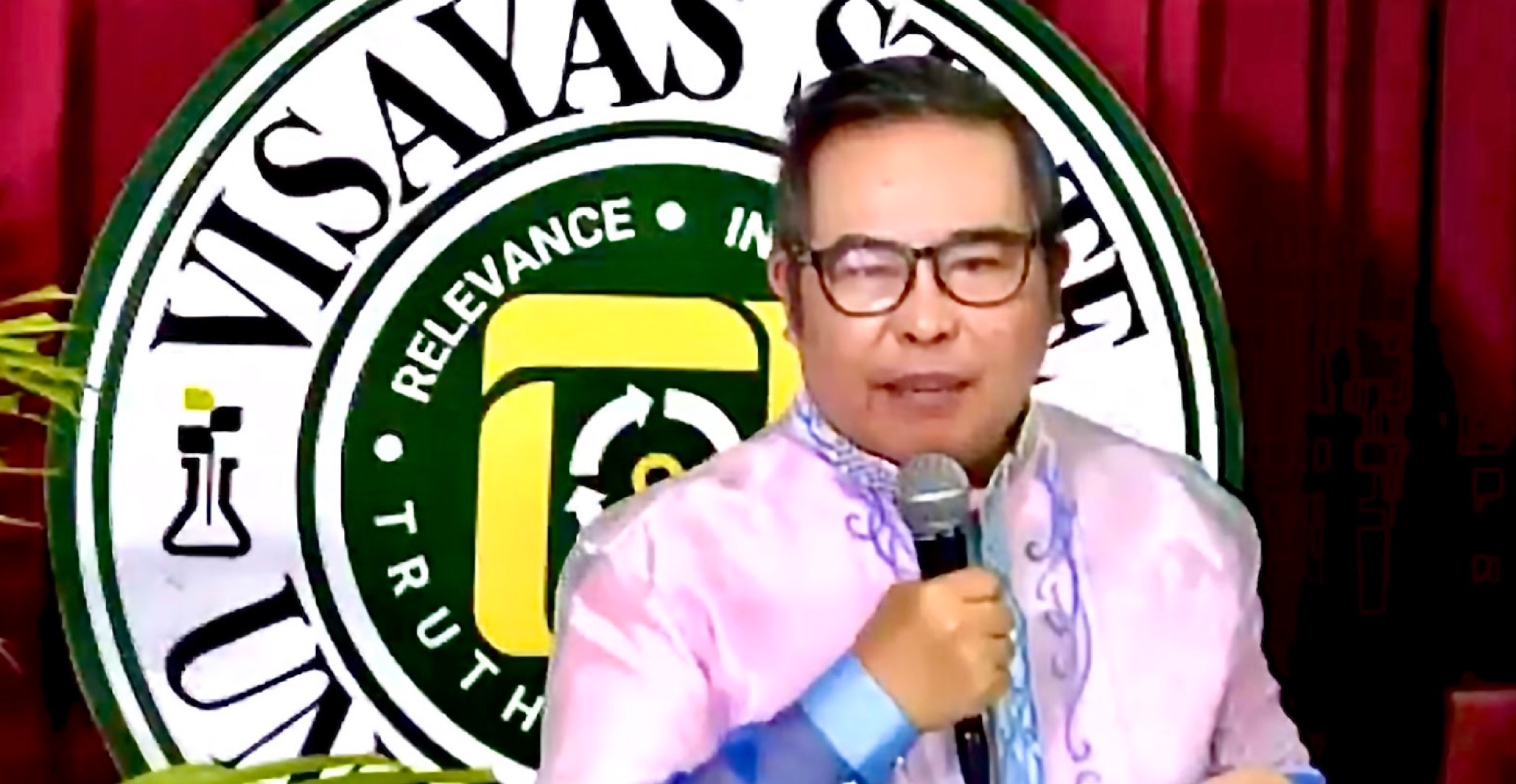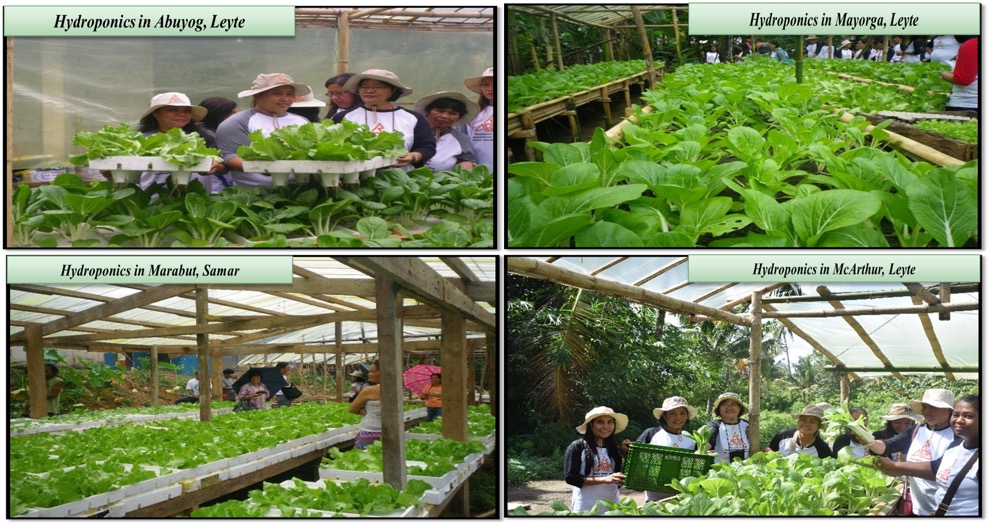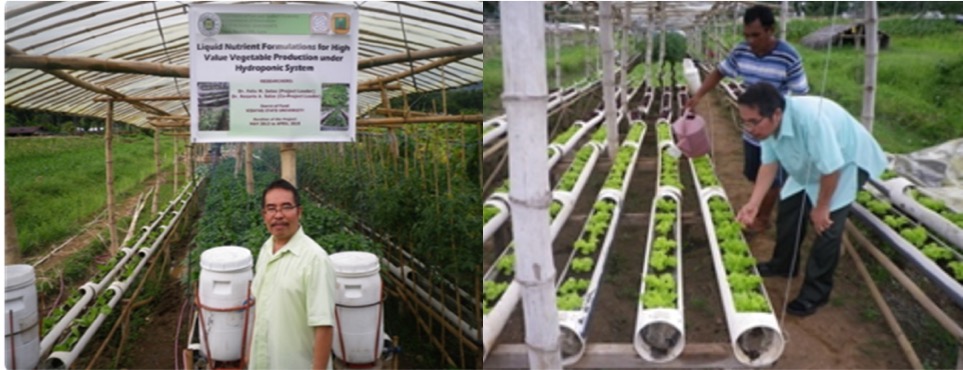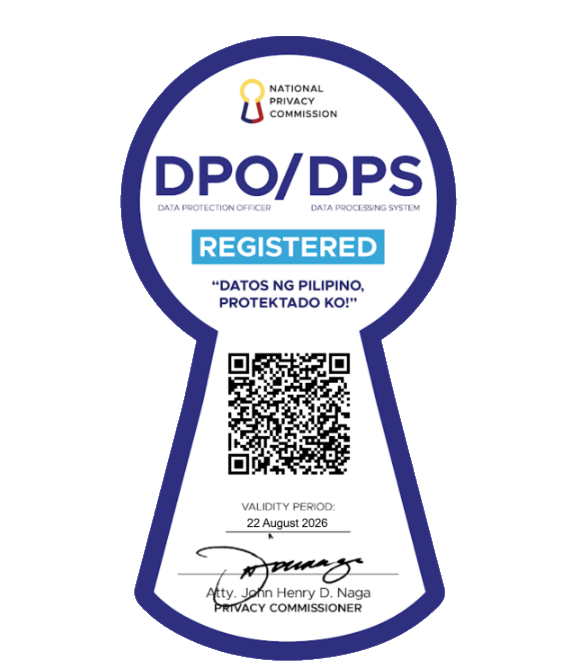Chemistry prof delivers SEARCA professorial chair lecture; promotes hydroponics farming in EV
- Details
- Written by Allen Glen Gil
-
Published: 09 March 2021

The future of farming is here in Eastern Visayas.
As part of his inaugural lecture being a distinguished grantee of a professorial chair award from the Southeast Asian Regional Center for Graduate Study and Research in Agriculture (SEARCA), Dr. Felix M. Salas promoted the hydroponics system as the future direction of agricultural practice in Region VIII.
In particular, Dr. Salas presented the important insights that he learned in combining liquid nutrient formulation (LNF) and the aggregate hydroponic system as a practical solution in addressing the growing food security concerns in the country.
LNF is a carefully proportioned liquid fertilizer used in hydroponic gardening. Simply, this LNF method is applied to crops grown on a soilless system that may use other mediums like sand, gravel, or coconut coir to provide mechanical support for the crop.
In his study, Dr. Salas found out the huge economic advantage of a combined LNF and hydroponics in alleviating rural poverty in the countryside.
“The use of liquid nutrient solutions is an innovative approach for agricultural food production that achieves economic, social, and environmental sustainability that may not be present in conventional forms of farming,” the chemistry professor revealed.

Hydroponic systems like the one employed by Dr. Salas are more productive compared to traditional farming methods because they provide optimal environmental control for plant growth, a more efficient way to consume resources, less space, prevention of soil-borne diseases and pests, and a reduced labor requirement.
The team of Dr. Salas specifically used an organic type of nutrient solution that included fermented acacia, golden snail, kudzu, Madre de agua, moringa, and tilapia effluents, which were previously proven to be viable sources of macro and micronutrients for hydroponic systems.
The concocted organic nutrient solutions applied by Dr. Salas in his research provided a cheaper, more nutritious, and more environmentally-friendly alternative to the inorganic fertilizers that are commonly used in conventional hydroponic systems.
Mainstreaming the use of LNF
In a previous interview, Dr. Salas explained that after Typhoon Yolanda devastated Eastern Visayas in 2013, several farmlands faced contamination from soil-borne diseases. This made traditional vegetable production more difficult for farmers to sustain.
This inspired Dr. Salas to pursue the marriage of liquid nutrient formulation and aggregate hydroponics to empower ordinary people and marginalized farmers to have food on their table through a sustainable and profitable soilless cultivation of vegetables.
The LNF technology has given a significant contribution to various local community vegetable demonstration farms and learning sites in selected project areas of the Typhoon Yolanda rehabilitation and recovery program in Eastern Visayas.
After testing this technology in the field, Dr. Salas now firmly believes that the use of LNF technology has huge potential in addressing health and food security issues in the region, especially now that we are currently experiencing a global health and climate crisis.
“With appropriate LNF, horticultural crops production in every household and community can surely help in providing nutritional security and health benefits, alleviating hunger and poverty, and supporting resilience, especially now in the midst of the current pandemic and the alarming effects of climate change”, says Dr. Salas.
Dr. Salas then ended his lecture by encouraging the audience towards better awareness of the nutritional and economic power of vegetables while also urging funding agencies to further prioritize investments in vegetable research and development.
VSU initially funded the project on LNF for high-value vegetable production starting in 2013 and has applied this technology in numerous training and extension projects under the university’s Horticulture and Environment Livelihood Program (HELP).
The LNF technology was also utilized under the extension projects of the Yolanda Rehabilitation and Recovery Program (YRRP) which was co-funded by the Food and Agriculture Organization (FAO), Climate Change Commission (CCC), and the Philippine Red Cross (PRC).
Dr. Salas is VSU’s sixth professor who received the SEARCA Regional Professorial Chair Grant. Previous grantees include Dr. Rotacio S. Gravoso and Dr. Zenaida C. Gonzaga in AY 2018 to 2019, Dr. Edgardo E. Tulin in AY 2017 to 2018, Dr. Victor B. Asio in AY 2014 to 2015, and Dr. Anabella B. Tulin in AY 2013 to 2014.


